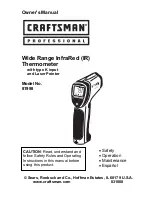
Proline Kryomats
33 / 137
Observe the safety data sheets for the various heat transfer liquids. If required, you can download the safety data
sheets from our homepage.
Open the LAUDA homepage, tap
Services
Download center.
In the Download center, chose the [Safety data sheet] option in the [Document type] drop-down list.
A list of safety data sheets in PDF format in different languages is displayed.
Tap the relevant safety data sheet.
The download starts and the PDF file is downloaded.
b)
Cooling water
Certain requirements are placed on the cooling water with regard to purity. Depending on the cooling water
contamination, a suitable method of purification and/or treatment of the water must be employed. The heat
exchanger and the complete cooling water circuit can become blocked, damaged and leaky due to unsuitable
cooling water. Extensive consequential damage may arise on the whole cooling circuit. The cooling water quality
depends on local conditions. If a fault or damage occurs due to unsuitable water quality, it is not covered by our
guarantee.
Important: Danger of corrosion of the cooling water circuit due to water of unsuitable quality.
Free chlorine (e.g. from disinfectants) and water containing chlorine lead to pitting in the cooling water
circuit.
Distilled, deionized or demineralized water is unsuitable due to its corrosive properties and leads to corrosion
in the cooling water circuit.
Seawater is unsuitable due to its corrosive properties and leads to corrosion in the cooling water circuit.
Water containing iron or iron particles leads to rust formation in the cooling water circuit.
Due to the high lime content hard water is not suitable for cooling and leads to calcification in the cooling
water circuit.
Cooling water with suspended matter is not suitable.
Untreated and unpurified river or cooling tower water is not suitable due to its microbiological content
(bacteria), which can become deposited in the cooling water circuit.
Putrid water is not suitable.
Suitable cooling water quality
pH – value
7.5 – 9.0
Hydrocarbonate [HCO
3
-]
70 – 300 mg/L
Chlorides (Cl
-
)
< 50 mg/L
Sulfates [SO
4
2-
]
< 70 mg/L
Ratio hydrocarbonate [HCO
3
-] / sulfates [SO
4
2-
]
> 1.0
Total water hardness
4.0 – 8.5 °dH
Electrical conductivity
30 - 500 μS/cm
Sulfite [SO
3
2-
]
< 1 mg/L
Free chlorine gas (Cl
2
)
< 0.5 mg/L
Nitrates (NO
3
-)
< 100 mg/L
















































